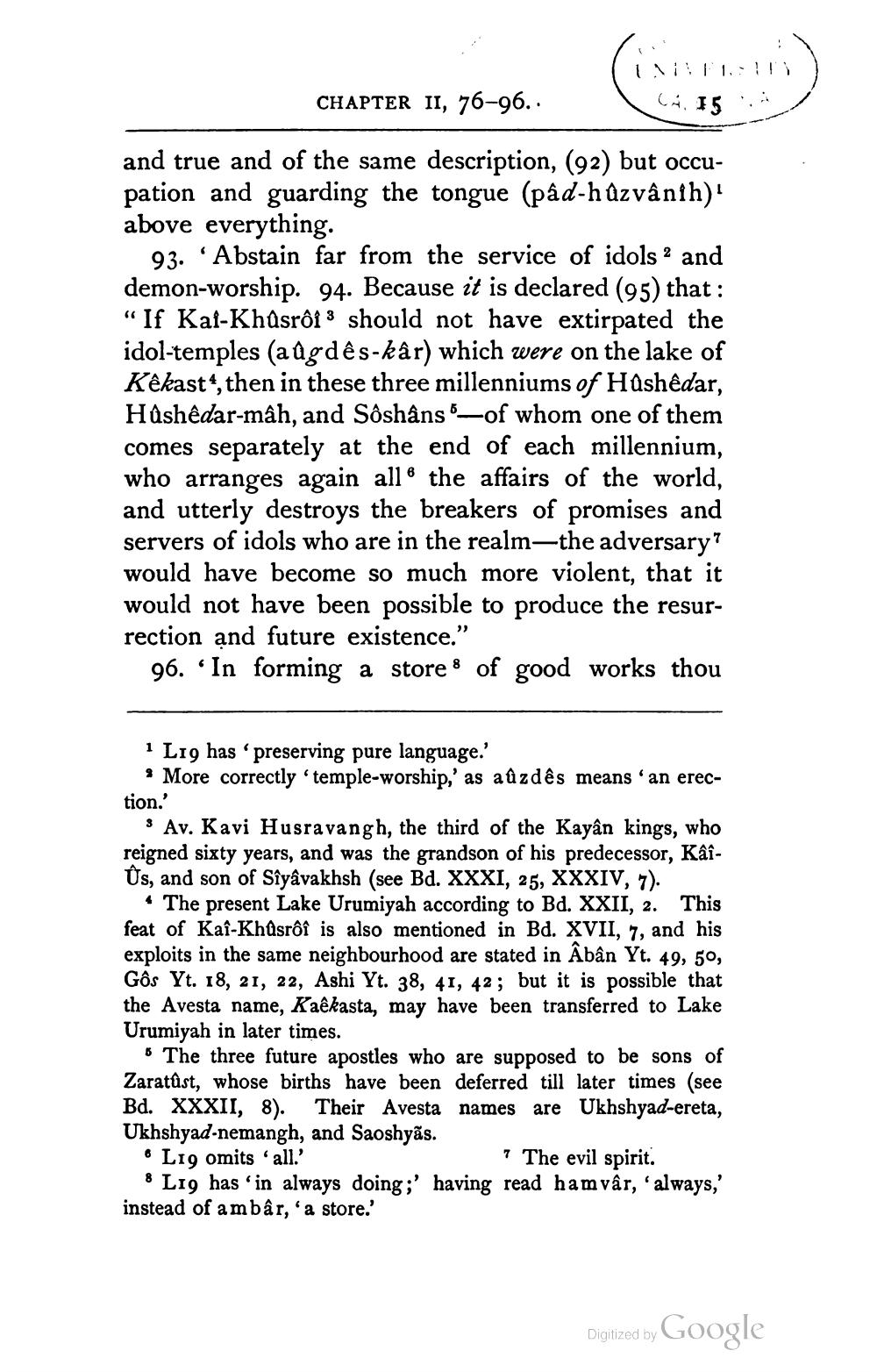________________
CHAPTER II, 76–96..
and true and of the same description, (92) but occupation and guarding the tongue (pâd-hüzvânih)' above everything.
93. ‘Abstain far from the service of idols 2 and demon-worship. 94. Because it is declared (95) that: “If Kal-Khásróis should not have extirpated the idol-temples (augdês-kâr) which were on the lake of Kêkast*, then in these three millenniums of Hashêdar, Hûshêdar-mâh, and Sôshậns —of whom one of them comes separately at the end of each millennium, who arranges again all the affairs of the world, and utterly destroys the breakers of promises and servers of idols who are in the realm—the adversary? would have become so much more violent, that it would not have been possible to produce the resurrection and future existence.”
96. 'In forming a store 8 of good works thou
1 L19 has preserving pure language.'
. More correctly temple-worship,' as aûzdês means 'an erection.'
Av. Kavi Husravangh, the third of the Kayân kings, who reigned sixty years, and was the grandson of his predecessor, KâîŪs, and son of Sîyâvakhsh (see Bd. XXXI, 25, XXXIV, 7).
• The present Lake Urumiyah according to Bd. XXII, 2. This feat of Kaî-Khüsrói is also mentioned in Bd. XVII, 7, and his exploits in the same neighbourhood are stated in Abân Yt. 49, 50, Gôs Yt. 18, 21, 22, Ashi Yt. 38, 41, 42; but it is possible that the Avesta name, Kaêkasta, may have been transferred to Lake Urumiyah in later times.
The three future apostles who are supposed to be sons of Zaratust, whose births have been deferred till later times (see Bd. XXXII, 8). Their Avesta names are Ukhshyad-ereta, Ukhshyad-nemangh, and Saoshyās. • L19 omits all.'
? The evil spirit. 8 L19 has ‘in always doing;' having read hamvâr, always,' instead of ambâr, 'a store.'
Digitized by Google




